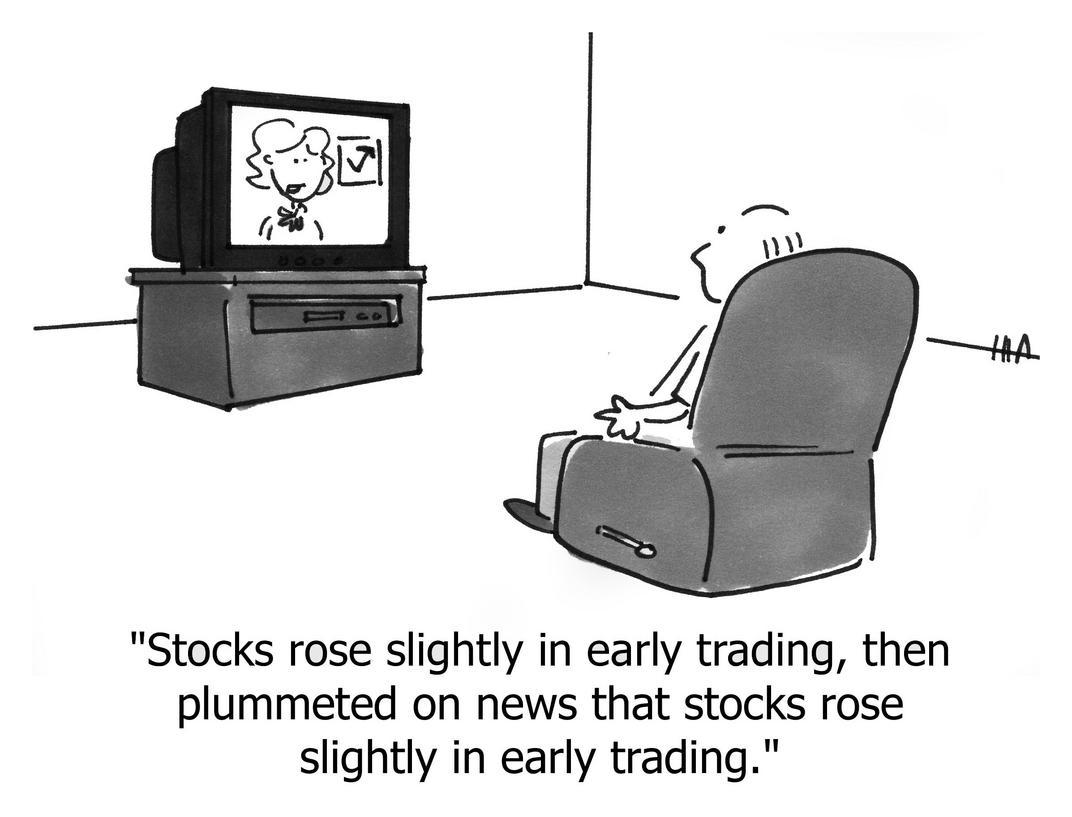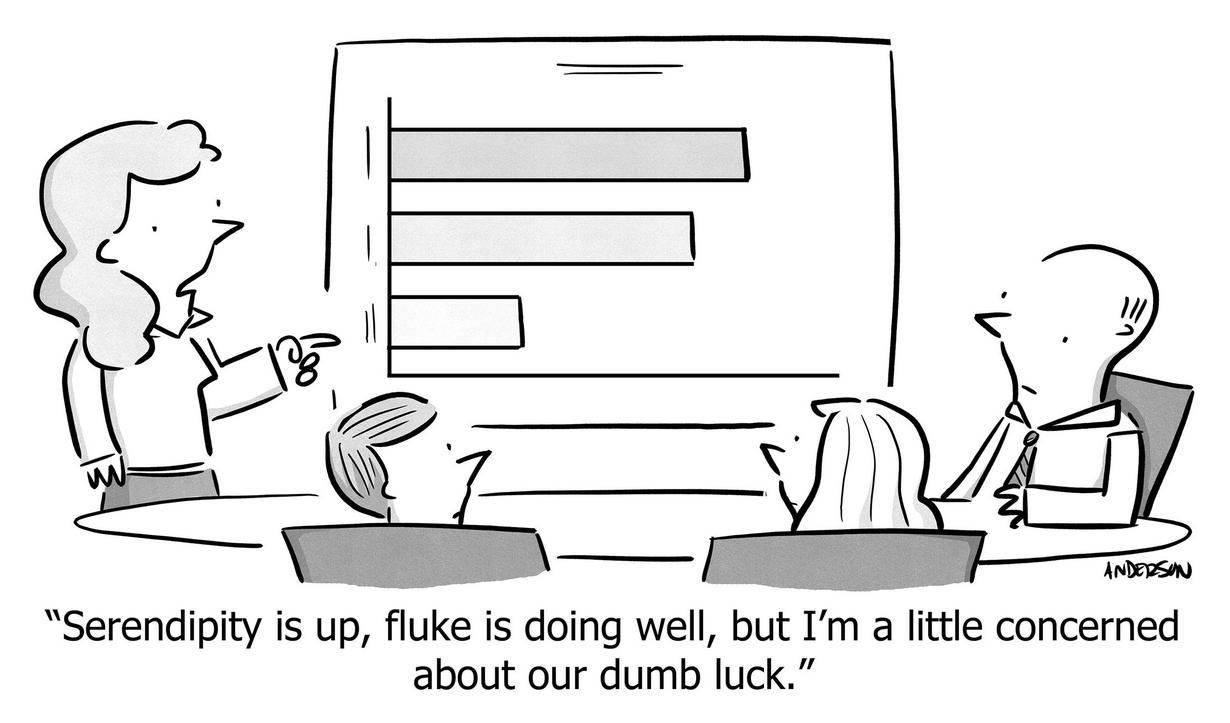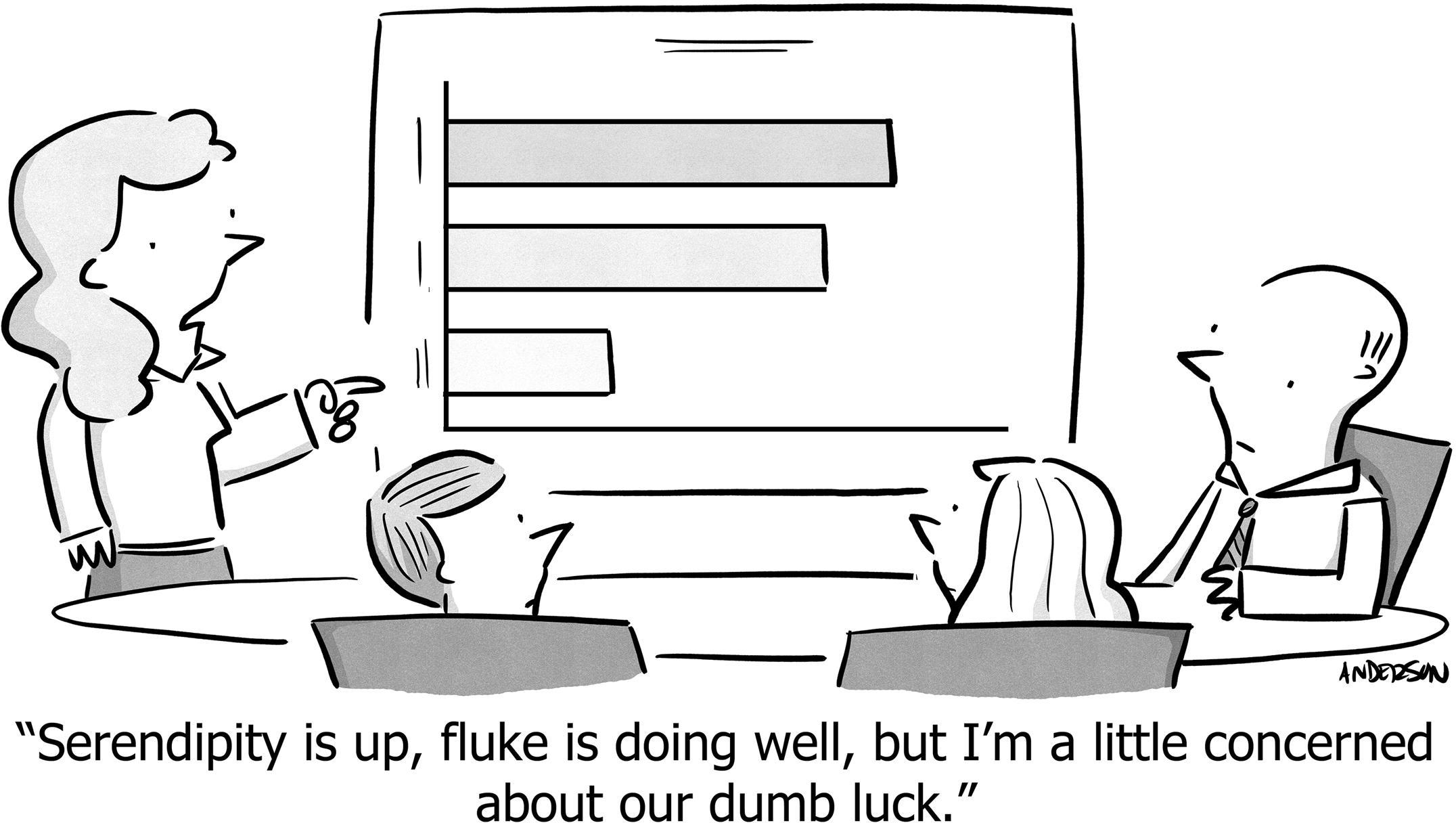Capturing luck with “or” instead of “and”
I won a fake stock market competition in elementary school.
I put all my money in a few penny stocks—those are stocks whose prices are less than a dollar. Back then, stock prices could only be multiples of 1/8. Their small denomination meant that any fluctuation was a large (as a percentage) fluctuation in value. Some days I had the worst portfolio, other days I had the best. The competition happened to end on an up-day.
This was an example of “high risk, high reward.” Like startups, but more random. (But are startups less random?)
Startups need luck too, in finding advertisement channels that work, in the right mix of features and usability that triggers product/market fit, in cultivating a useful social media presence, on employee number one working out well, on a competitor not making a fatal move, on there being enough money in the market, on appropriate pricing, on market forces not shifting the rules of the game, and the list goes on. And that’s after the luck of where and when you were born, the color of your skin, your gender, and that list goes on too.
When you put it that way, it’s obvious why startups fail so frequently! They need a lot of success in a lot of areas, which is a lot of “good luck” to string together.
How can you reduce this effect, and maybe even turn luck to work in your favor?
The list above is a bunch of “and’s.” That is, you need a good marketing channel and you need a few killer features and you need great initial employees and you need a healthy market, etc.. “And” is bad! It’s bad because each one has a probability of success, and you compute the total probability of success by multiplying them.
No matter how optimistic you are about those probabilities, the end product is a small number. 70% multiplied by itself six times is only 12%; most of these things we’re listing have a probability less than 70%, and there are more than six things that have to go right.
You can increase the chance that some of those things go right by making explicit choices. For example, you can pick a large, growing, and healthy market so that the risk that “no one wants to solve this problem” goes to zero. You can compete in a niche where incumbents don’t care or cannot move quickly. You can hire someone you’ve worked with before, or build something sustainable without hiring. You can generate Love rather than only Utility or Coercion to overcome your deficiencies.
Here’s a long list of those things and how to mitigate them.
Even so, there will be plenty of challenges, so we need a second technique for boosting probability: Leverage “or” instead of “and.”
Consider marketing channels. You could get your first few hundred customers through GoogleAds, or Facebook ads, or affiliate sales, or targeted outbound sales, or SEO, or guesting on podcasts and newsletters, or partnering with a high-profile reseller, or great press about your unique brand and message. Only one of these needs to work! So although the probability of success for each one of these is low, the probability that something will work is higher.
This is true of everything from product features to website copy for conversions to avenues to exiting the company years from now. The general rule is optionality is strength. When there are lots of ways for things to go right, that is a strong position even if you haven’t actualized one of those ways.
The converse of this is a business that has extra “and” clauses—even more than usual. Marketplaces, for example,
almost never succeed. When they do succeed, they are often durable and profitable, which makes them a smart bet for a Venture Capitalist that can maintain a diversified portfolio of attempts, but for the individual business it’s a tough road. A marketplace has to thrive both with the sellers and the buyers, and it can’t be too expensive to build up both sides, and both sides need to realize value, and it must not be easier/
By accumulating “and” requirements, you are lowering the probability of success. By stringing together possible solutions with “or,” you are increasing the number of ways that luck could smile upon you.
Set yourself up for luck!
https://longform.asmartbear.com/capturing-luck/
© 2007-2026 Jason Cohen
 @asmartbear
@asmartbear ePub (Kindle)
ePub (Kindle)
 Printable PDF
Printable PDF









